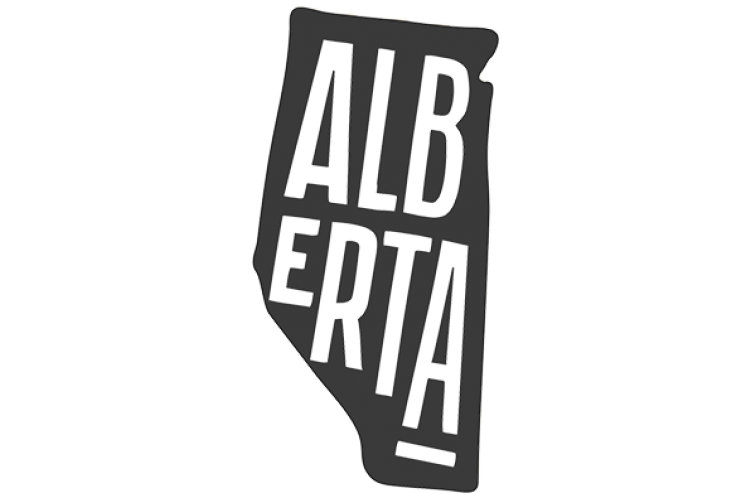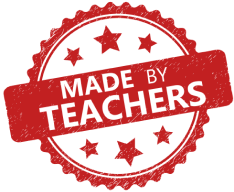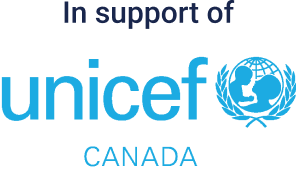Alberta Grade 9

CLICK HERE FOR CURRICULUM CONNECTIONS, LESSONS AND SUPPORT RESOURCES.
Kids Boost Immunity (KBI) provides educational content (lessons and support materials) developed by teachers and where needed, health experts, that is directly linked to curriculum and is available completely for free. Each lesson is paired with an online quiz that students can take on a laptop, tablet, or phone. Every time a student scores 80% or higher on a quiz, we donate life-saving vaccines to UNICEF Canada. To learn more about KBI, click here.
Click on the overarching curriculum themes below to see the curriculum outcomes that match KBI educational content. The full Grade 9 Alberta Curriculum Connections document is here.
- Science
-
Curricular outcomes:
Scientific Curiosity and Vaccine Discoveries
- Goal: Encourage students at all grade levels to develop a critical sense of wonder and curiosity about scientific and technological endeavours.
Critical Thinking & Evaluating Information/ Navigating the World of Online (Mis)Information
- Applicable to all units
- Scientific Inquiry- Attitudes: Students will be encouraged to: Seek and apply evidence when evaluating alternative approaches to investigations, problems and issues (e.g., take the time to accurately gather evidence and use instruments carefully; consider observations, ideas and perspectives from a number of sources during investigations and before drawing conclusions and making decisions)
Science - Biological Diversity
- 1. Investigate and interpret diversity among species and within species, and describe how diversity contributes to species survival
- 4. Identify impacts of human action on species survival and variation within species, and analyze related issues for personal and public decision making
- 3. Describe, in general terms, the role of genetic materials in the continuity and variation of species characteristics; and investigate and interpret related technologies
- Distinguish between, and identify examples of, natural and artificial selection (e.g., evolution of beak shapes in birds, development of high milk production in dairy cows)
Science- Attitude Outcomes
- Interest in Science
- Students will be encouraged to show interest in science-related questions and issues, and confidently pursue personal interests and career possibilities within science-related fields (e.g., select and explore media on topics related to species diversity
Applicable KBI lessons:
1. Scientific Curiosity and Vaccine Discoveries
- Literacy builder worksheet/answer guide
- Lesson worksheet/answers
- Inquiry activities/answer guides
2. Critical Thinking & Evaluating Information
- Literacy builder worksheet/answer guide
- Lesson worksheet/answers
- Video worksheet/answers
- Inquiry activities/answer guides
- Numeracy activity/answers
3. Navigating the World of Online (Mis)Information
- Inquiry activities
4. Diversity of Living Things
- Literacy builder worksheet/answer guide
- Lesson worksheet/answers
5. Environment & Climate Change
- Literacy builder worksheet/answer guide
- Lesson worksheet/answers
- Video worksheet/answers
- Inquiry activities/answer guides
- Numeracy activity/answers
6. Evolution and Natural Selection
- Literacy builder worksheet/answer guide
- Lesson worksheet/answers
- Video worksheet/answers
- Inquiry activities/answer guides
- Social Studies
-
Curricular outcomes:
DIMENSIONS OF THINKING
- 8.S.1 develop skills of critical thinking and creative thinking:
- analyze the validity of information based on context, bias, source, objectivity, evidence and reliability to broaden understanding of a topic or an issue
RESEARCH FOR DELIBERATIVE INQUIRY
- 8.S.7 apply the research process:
- develop a position that is supported by information gathered through research
- determine how information serves a variety of purposes and that the accuracy or relevance of information may need verification
- practise the responsible and ethical use of information and technology
- plan and conduct a search, using a wide variety of electronic sources
- develop a process to manage volumes of information that can be made available through electronic sources
- evaluate the relevance of electronically accessed information to a particular topic
- make connections among related, organized data, and assemble various pieces into a unified message ¾ refine searches to limit sources to a manageable number
- 8.S.9 develop skills of media literacy:
- examine techniques used to enhance the authority and authenticity of media messages
- examine the values, lifestyles and points of view represented in a media message
- analyze the impact of television, the Internet, radio and print media on a particular current affairs issue
Social Studies- Governance & Rights
- 9.1.4 examine the structure of Canada’s federal political system
- 9.1.7 assess, critically, how the increased demand for recognition of collective rights has impacted the legislative process in Canada by exploring and reflecting upon the following questions and issues:
- How does the Indian Act recognize the status and identity of Aboriginal peoples? (PADM, I, C)
- How does legislation such as Treaty 6, Treaty 7 and Treaty 8 recognize the status and identity of Aboriginal peoples? (I, PADM, LPP)
SOCIAL STUDIES AND ABORIGINAL PERSPECTIVES AND EXPERIENCES
- For historical and constitutional reasons, an understanding of Canada requires an understanding:
- of Aboriginal perspectives
- of Aboriginal experiences
Applicable KBI lessons:
1. Critical Thinking & Evaluating Information
- Literacy builder worksheet/answer guide
- Lesson worksheet/answers
- Video worksheet/answers
- Inquiry activities/answer guides
- Numeracy activity/answers
2. Navigating the World of Online (Mis)Information
- Inquiry activities
3. Canada’s Three Levels of Government
- Lesson worksheet/answers
- Lesson worksheet/answers
- Numeracy activity/answers
4. Life on Turtle Island
- Lesson worksheet/answers
- 8.S.1 develop skills of critical thinking and creative thinking:
- English Language Arts (ELA)
-
Curricular outcomes:
General Outcome 1
- 1.1 Discover and Explore
- Talk with others and experience a variety of oral, print and other media texts to explore, develop and justify own opinions and points of view
- 1.2 Clarify and Extend
- Assess whether new information extends understanding by considering diverse opinions and exploring ambiguities
General Outcome 2
- 2.1 Use Strategies and Cues
- Identify explicit and implicit ideas and information in texts; listen and respond to various interpretations of the same text
- Select appropriate reading rate and strategies for comprehending texts less closely connected to prior knowledge and personal experiences
- Preview complex texts as to their intent, content and structure, and use this information to set a purpose and select strategies for reading
- 2.2 Respond to Texts
- Describe how theme, dominant impression and mood are developed and sustained through choices in language use
- Identify features that define particular oral, print and other media texts; discuss differences in style and their effects on content and audience impression
- 2.3 Understand Forms, Elements and Techniques
- Evaluate the effectiveness of different types of media texts for presenting ideas and information
General Outcome 3
- 3.1 Plan and Focus
- Assess adequacy, accuracy, detail and appropriateness of oral, print and other media texts to support or further develop arguments, opinions or points of view
- Select types and sources of information to achieve an effective balance between researched information and own ideas
- Select information sources that will provide effective support, convincing argument or unique perspectives
- 3.2 Select and Process
- Obtain information reflecting multiple perspectives from a variety of sources, such as expository essays, graphs, diagrams, online catalogues, periodical indices, film libraries, electronic databases and the Internet, when conducting research
- Distinguish between primary and secondary sources, and determine the usefulness of each for research purposes
- Evaluate sources for currency, reliability and possible bias of information for a particular research project
- 3.3 Organize, Record and Evaluate
- Evaluate usefulness, relevance and completeness of gathered information; address information gaps
- 3.4 Share and Review
- Reflect on the research process, identifying areas of strength and ways to improve further research activities
General Outcome 5
- 5.1 Respect Others and Strengthen Community
- Analyze how oral, print and other media texts reflect the traditions, beliefs and technologies of different cultures, communities or periods in history
Applicable KBI Lessons:
1. Critical Thinking & Evaluating Information
- Literacy builder worksheet/answer guide
- Lesson worksheet/answers
- Video worksheet/answers
- Inquiry activities/answer guides
- Numeracy activity/answers
2. Navigating the World of Online (Mis)Information
- Inquiry activities
- 1.1 Discover and Explore
Curriculum-Related Themes Throughout the Year
- Reflecting on hardships and courage during WWII (November)
-
Applicable KBI lessons:
1. Remembrance Day / Veterans Day / Armistice Day
- Reflecting on leadership qualities that foster kindness (December)
-
Applicable KBI lessons:
1. Christmas in No Man’s Land - Reflecting on Kindness
- Inquiry/creative activities
- Highlighting some key inspirational leaders during Black History Month as well as some experiences of refugees from different parts of the world (February)
-
Applicable KBI lessons:
1. Black History Month
2. Refugee Experiences
- Lesson worksheet/answers
- Inquiry activities
- Celebrating Inspiring Women in STEM (March)
-
Applicable KBI lessons:
1. International Women's Day - Celebrating Inspiring Women in STEM
- Literacy builder worksheets/answer guides
- Numeracy activity
- Inquiry activities
- Understanding communicable diseases and how they are spread, and learning about immunization. Suggested during flu season, immunization awareness week, and school vaccinations (if applicable)
-
Applicable KBI lessons:
1. Immunization Awareness Week
2. The Spread of Infectious Diseases
3. Scientific Curiosity and Vaccine Discoveries
- Literacy builder worksheet/answer guide
- Lesson worksheet/answers
- Inquiry activities/answer guides




